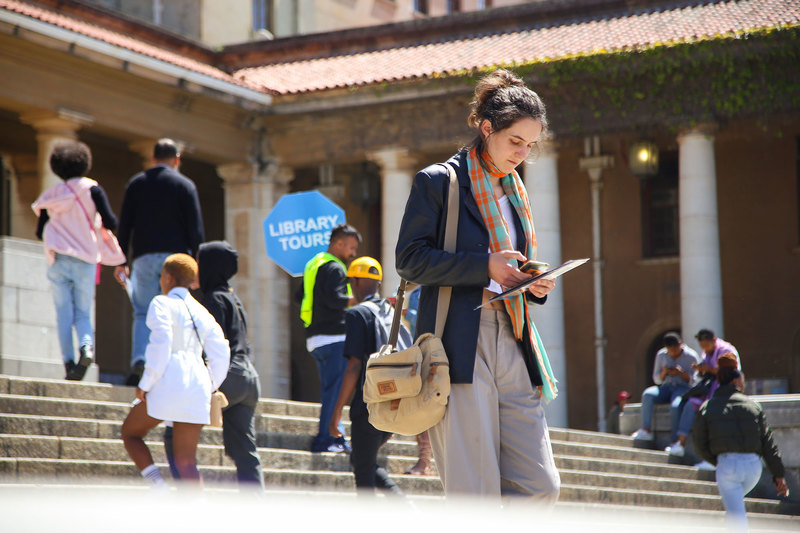UCT Chatbot: All your FAQs at your fingertips
13 January 2023 | Story Kamva Somdyala. Photo Je’nine May. Read time 4 min.
As the University of Cape Town (UCT) prepares to welcome new and returning students, two departments have joined forces to help students have a smooth-sailing registration and orientation period. This through an optimised Chatbot which will for the first time be used for queries related to registrations.
The UCT Chatbot, which provides important information about the ins and outs of the institution, was developed by the Academic Advising Initiative (AAI) in the Centre for Higher Education and Development (CHED) as part of UCT’s Central Advising and Referral Services (UCT CARES). In collaboration with ICTS and Student System Support (SSS), the bot has now been relaunched as an extension of the UCT contact centre, which is open to all queries. It can now be accessed on two platforms – through the official university website or WhatsApp on 087 240 6965, with plans for increased accessibility in the future.
“We have collaborated with the SSS and ICTS to expand its reach, promoting its use during registration and orientation. We are giving students another platform other than reaching out to their faculties. So, they’ll get to engage with the agents – SSS and UCT CARES – in real time. The aim is to shorten response times so that queries can be attended to as speedily as possible,” said Dr Riashna Sithaldeen, head of the AAI.
To use the bot, simply click on the icon on the UCT website home page or add the bot to your WhatsApp contacts on 087 240 6965. You will be prompted to either use the pre-populated FAQ menu or type in your own question. The bot will then answer your question, prompt you further or allow you to ask for help from a friendly SSS or UCT CARES agent. “We are very excited with this collaboration with SSS. This is a real opportunity to leverage technology and improve the UCT user experience during a period of high query volume to the contact centre,” Sithaldeen said.
The Chatbot was founded at the end of April 2020 and has to date received thousands of queries from students across faculties and levels of study which span a range of topics, including struggles with connectivity and financial aid. UCT CARES has used the platform to connect students to resources such as the Student Wellness Service. Staff members in search of information to assist their students have also used the service since its launch.
And over the 2023 registration period, it will offer a “quick help” to students to “reduce the pressure on the contact centre during the busy registration period” said Simon Jackson of the SSS.
“SSS will primarily deal with the technical queries anticipated during the registration period.”
“During registration we will have live agents who will be available to answer questions that the Chatbot can’t,” said Jackson. Queries will be directed to two teams – “SSS will primarily deal with the technical queries anticipated during the registration period. We have a close relationship with faculties and other key stakeholders in order to assist our students, parents and staff as efficiently as possible. Where we come across non-technical queries, we will refer the user to our friendly UCT CARES agents,” Jackson said.
Dr Deepti Charitar of the AAI said, “while the bot is still learning and its accuracy will improve over time, options are plenty as the bot covers a range of frequently asked questions (FAQs), everything from application to security and accommodation.”
UCT CARES provides the UCT campus community with a central point of contact for the information and services they need.
 This work is licensed under a Creative Commons Attribution-NoDerivatives 4.0 International License.
This work is licensed under a Creative Commons Attribution-NoDerivatives 4.0 International License.
Please view the republishing articles page for more information.










